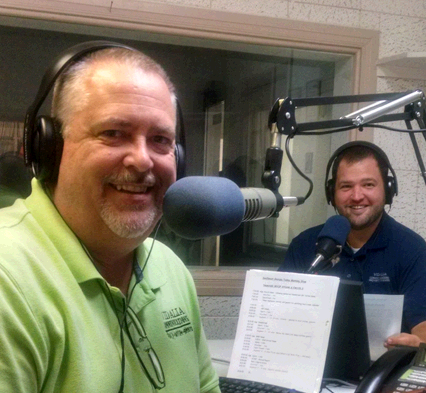The following press release was issued today by the American Red Cross.
(May 13, 2020) — The American Red Cross encourages healthy individuals to make appointments to donate blood to ensure blood remains readily available for patients who still rely on transfusions during this uncertain time. Right now, African American blood donors are critically needed to help patients battling sickle cell disease amid this coronavirus outbreak.
Since mid-March, the number of African Americans donating blood with the Red Cross has dropped by more than half. This low donor turnout is largely due to blood drive cancellations at businesses, churches and schools and the disproportionate COVID-19 infection rates for African Americans compared to other groups.
“Blood transfusion helps patients with sickle cell disease – the most common genetic blood disease in the U.S. – and African American donors play an important role in their treatment,” said Dr. Yvette Miller, executive medical officer, Red Cross Blood Services. “We want to assure donors that their health and safety is a top priority for the Red Cross. By adding safeguards to our drives in response to this coronavirus, we hope individuals will roll up a sleeve to help those counting on their donation.”
Each Red Cross blood drive and donation center follows the highest standards of safety and infection control, and additional precautions – including social distancing and face coverings for donors and staff – have been implemented to ensure the health of all those in attendance.
How blood donations help patients with sickle cell disease
In the U.S., about 100,000 people of various racial and ethnic backgrounds are living with sickle cell disease, most of whom are of African or Latino descent. African American blood donors are vital for many patients with rare blood types, like those with sickle cell disease, who depend on blood that must be matched very closely – beyond the A, B, O and AB blood types – to reduce the risk of complications.
Despite the decline in blood donations from African American donors, the need for blood products for patients with sickle cell disease has remained steady. Without a readily available blood supply, sickle cell patients can experience severe pain, tissue and organ damage, acute anemia and even strokes. Furthermore, sickle cell patients are at high risk of serious complications from coronavirus infection, and blood transfusion can be a lifesaving treatment for these patients.
Who blood donations help
On March 28, Alexis Jarrett experienced a pain crisis brought on by sickle cell disease. She had extreme fatigue with severe pain on the right side of her body. Her doctor wanted to avoid hospitalization because of the increased risk COVID-19 poses to sickle cell patients, so she tried to get the pain under control at home and through outpatient care.
But, on March 31, as the pain continued to intensify, Jarrett was forced to visit the emergency department and was admitted to the hospital. Her hemoglobin had dropped to critically low levels. She needed a blood transfusion, but having received over 30 transfusions in her lifetime due to sickle cell disease, she has built up antibodies that make it challenging to find a suitable blood match. She had to wait two more days to receive her transfusion due to a shortage of the unique blood she needs.
“I couldn’t have anyone at the hospital with me because of the coronavirus risk, so I was alone. And, the whole time, I was suffering,” Jarrett said, “but the blood was an almost immediate help. I could feel it immediately.” Her hemoglobin recovered, and she was discharged the next day, after spending three days in the hospital. Now, nearly a month later, she is still recovering. Her hemoglobin remains lower than it should be, but despite the resulting fatigue, she is doing better.
Jarrett believes that the COVID-19 crisis has brought an important silver lining – people coming together to help others - and blood donors may have a profound impact. “I think sometimes, when issues like COVID-19 happen, they seem so big that we don’t understand how our little bit can help," she said. “But for me, your little bit means a lot. You are helping make a difference and helping my life continue on.”
To those who may be hesitant to give blood, Jarrett added, “Getting in the car to ride down to the Red Cross is different from riding to the store,” she said. “Getting out of the house and knowing you helped save a life – to say ‘I did this to make sure someone else could live’ – that’s one of the best parts of society. At the end of the day, that’s what matters.”
Make an appointment
Healthy individuals who are feeling well are asked to make an appointment to donate in the weeks and months ahead by downloading the free Red Cross Blood Donor App, visiting RedCrossBlood.org, calling 1-800-RED CROSS (1-800-733-2767) or enabling the Blood Donor Skill on any Alexa Echo device. Donors are asked to schedule an appointment prior to arriving at the drive and are required to wear a face covering or mask while at the drive, in alignment with Centers for Disease Control and Prevention public guidance.









